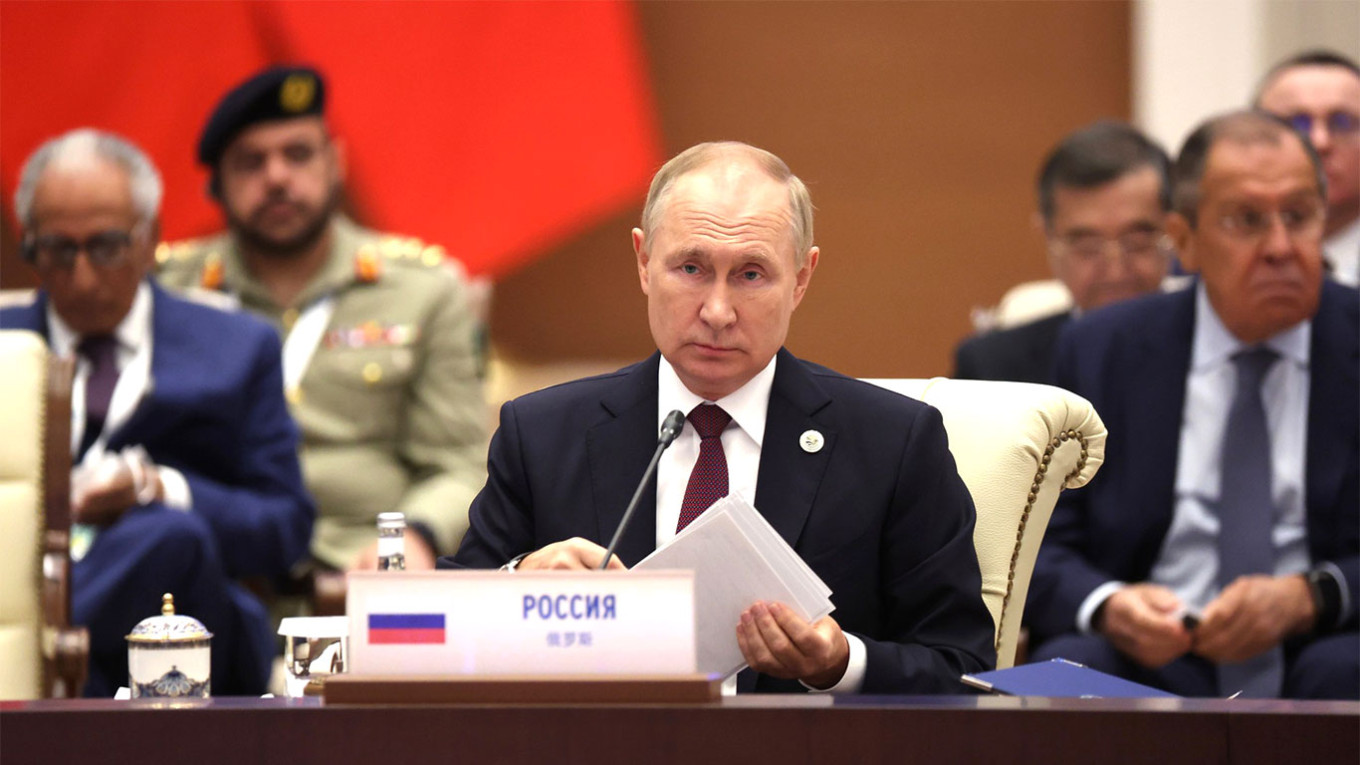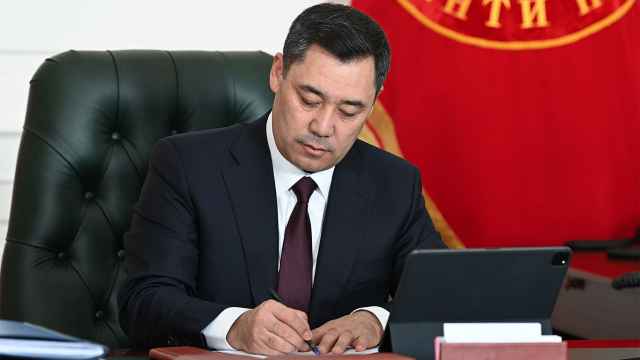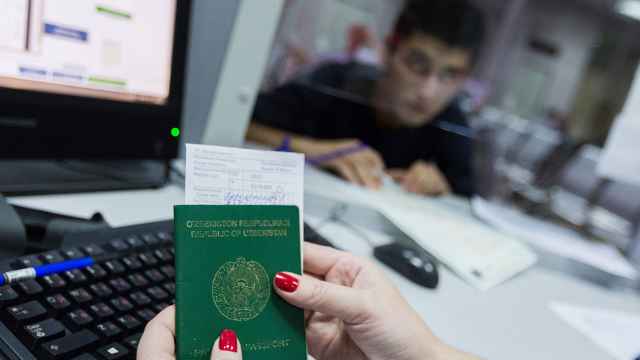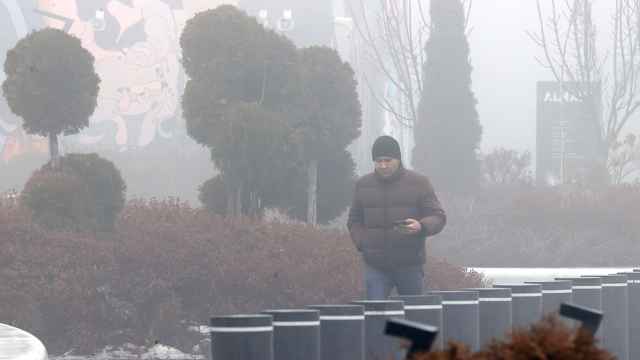BISHKEK, Kyrgyzstan — Russia is losing influence over former Soviet nations in Central Asia as the war in Ukraine increasingly strains Moscow’s political, military and economic sway, analysts told The Moscow Times.
“There is growing friction between the Kremlin, its proxies and local Central Asian elites,” said Paul Stronski, an expert on Russia’s relations with Central Asia at the Carnegie Endowment for International Peace.
Not only are Central Asia officials concerned about the precedent set by Moscow’s attack on a former Soviet country, but they are also using Russia’s declining influence to re-orientate their economies, according to experts.
Russia’s diminished role was on display at last week’s meeting of the Shanghai Cooperation Organization (SCO) in Uzbekistan where President Vladimir Putin was apparently chided by the Indian and Chinese leaders and kept waiting by heads of state including Kyrgyz President Sadyr Japarov.
But a new assertiveness against Moscow has been on display for months, according to Stronski.
In one of the most striking instances, Kazakh President Kassym-Jomart Tokayev rejected Russian calls to recognize eastern Ukraine’s pro-Moscow separatists in June when on stage with Putin at the St. Petersburg Economic Forum.
And last month, Tokayev’s Uzbek counterpart Shavkat Mirziyoyev pointedly denounced Soviet repressions.
“Local Central Asian elites are unnerved about the Ukraine precedent,” said Stronski.
Perhaps most significantly, Moscow was conspicuously absent in a flare-up of violence between Kyrgyzstan and Tajikistan earlier this month that left over 100 people dead and involved tanks, aviation and artillery.
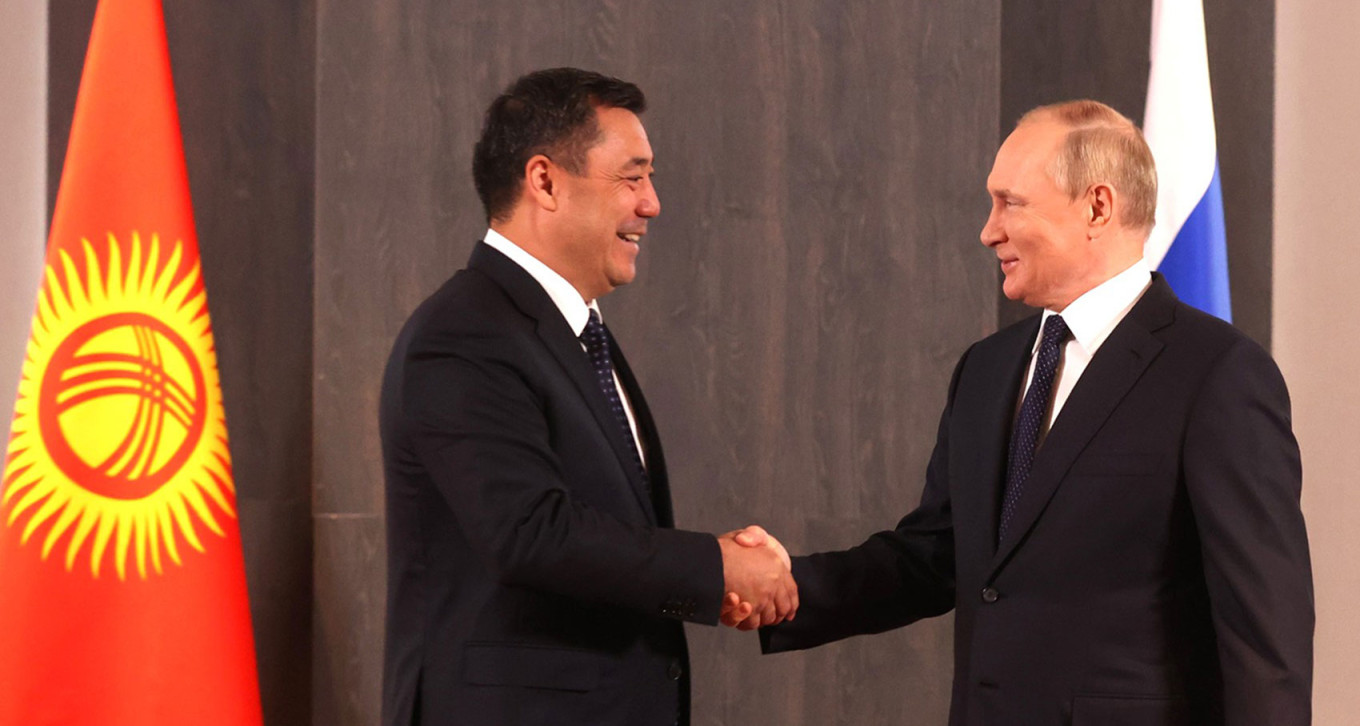
Experts like Stronski put Russia’s lack of interest down to reduced capacity as Moscow commits all its resources to Ukraine.
The changing dynamic of the relationship between Central Asia and Russia was revealed at Putin’s treatment at the SCO summit in Samarkand last week.
Uzbekistan’s Mirziyoyev personally greeted Chinese leader Xi Jinping at the airport, while dispatching his second in command to welcome Putin shortly after.
Kremlin watchers marveled at Putin — notorious for leaving high-level guests waiting for hours — being forced to wait for Japarov. And they drew attention to the seating arrangements at an informal reception that placed Turkish President Recep Tayyip Erdogan at the head of the table and relegated Putin to the side.
Finally, Putin was publicly deferential to Xi and Indian Prime Minister Narendra Modi, acknowledging their concerns about Russia’s military campaign in Ukraine.
“What we’ve seen in Samarkand was Putin’s nullification and self-destruction,” Igor Yakovenko, a former Russian lawmaker, told the U.S.-funded RFE/RL news outlet. “Putin arrived having lost [in Ukraine], and losers are disliked.”
Russia, China and Turkey are all vying for influence in Central Asia, said Alexei Venediktov, the former editor-in-chief of shuttered radio station Ekho Moskvy.
“But the problem lies in all three of them being in different situations: China is experiencing economic problems, Turkey is building itself up as a regional power, Russia is bogged down in Ukraine.”
However, some experts caution against exaggerating Russia’s declining influence in a region where it has historically exercised significant political power through its size, proximity and close contacts with local elites.
In particular, Russia’s deployment of peacekeeping troops to Kazakhstan in January after unrest was a reminder of Moscow’s clout.
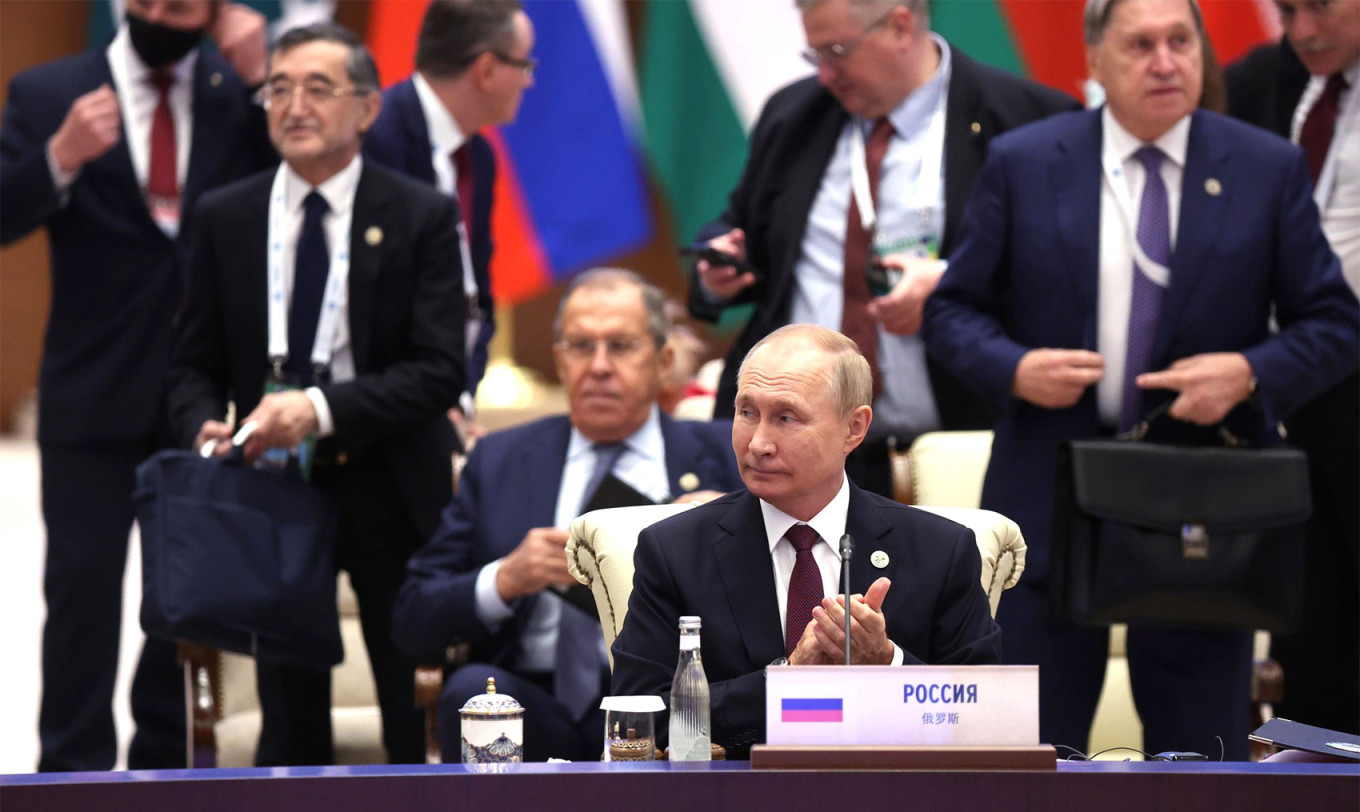
“Authoritarian regimes in Central Asia understand very clearly that only Russia has a certain amount of influence over domestic politics,” said Temur Umarov, an expert on Central Asia at the Carnegie Endowment for International Peace.
“This gives Russia leverage,” he told The Moscow Times.
Still, trade figures in 2022 back up claims of Moscow slowly loosening its grip on Central Asia.
The EU’s largest economy, Germany, boosted trade with Kazakhstan 80% in the first half of 2022 and 111% with Uzbekistan, according to Bloomberg.
“Kazakhstan is gradually beginning to drift away from Russia,” said Venediktov.
Uzbekistan, Central Asia’s second-largest economy, signed $15 billion worth of trade and investment deals with China at the SCO.
At the same time, the region has largely observed Western sanctions imposed on Russia for its attack on Ukraine.
“Objectively, no one will close themselves off from Russia because their welfare depends on effective economic cooperation,” said Stanislav Pritchin, an expert on Central Asia at the Russian Academy of Sciences.
“But they will try to create an outward image that they’re not helping evade sanctions,” he added.
Banks in Kazakhstan, and to a lesser extent Uzbekistan and Kyrgyzstan, have largely closed a loophole that had allowed Russians to obtain Visa and Mastercard cards after the international payment firms exited Russia.
And Kazakh, Kyrgyz and Uzbek banks this week suspended Russia’s Mir payment system — which Moscow touts as an alternative to Visa and Mastercard.
In addition, Russia’s top lender Sberbank sold its Kazakh subsidiary earlier this month and there have been reports of Kazakhstan detaining trucks filled with sanctioned European goods bound for Russia.
In both politics and economics, a period of Russian weakness has been a chance for Central Asian states to look further afield.
“The conflict in Ukraine has given new life to the region’s efforts to balance their foreign policies,” said expert Stronski.
A Message from The Moscow Times:
Dear readers,
We are facing unprecedented challenges. Russia's Prosecutor General's Office has designated The Moscow Times as an "undesirable" organization, criminalizing our work and putting our staff at risk of prosecution. This follows our earlier unjust labeling as a "foreign agent."
These actions are direct attempts to silence independent journalism in Russia. The authorities claim our work "discredits the decisions of the Russian leadership." We see things differently: we strive to provide accurate, unbiased reporting on Russia.
We, the journalists of The Moscow Times, refuse to be silenced. But to continue our work, we need your help.
Your support, no matter how small, makes a world of difference. If you can, please support us monthly starting from just $2. It's quick to set up, and every contribution makes a significant impact.
By supporting The Moscow Times, you're defending open, independent journalism in the face of repression. Thank you for standing with us.
Remind me later.



